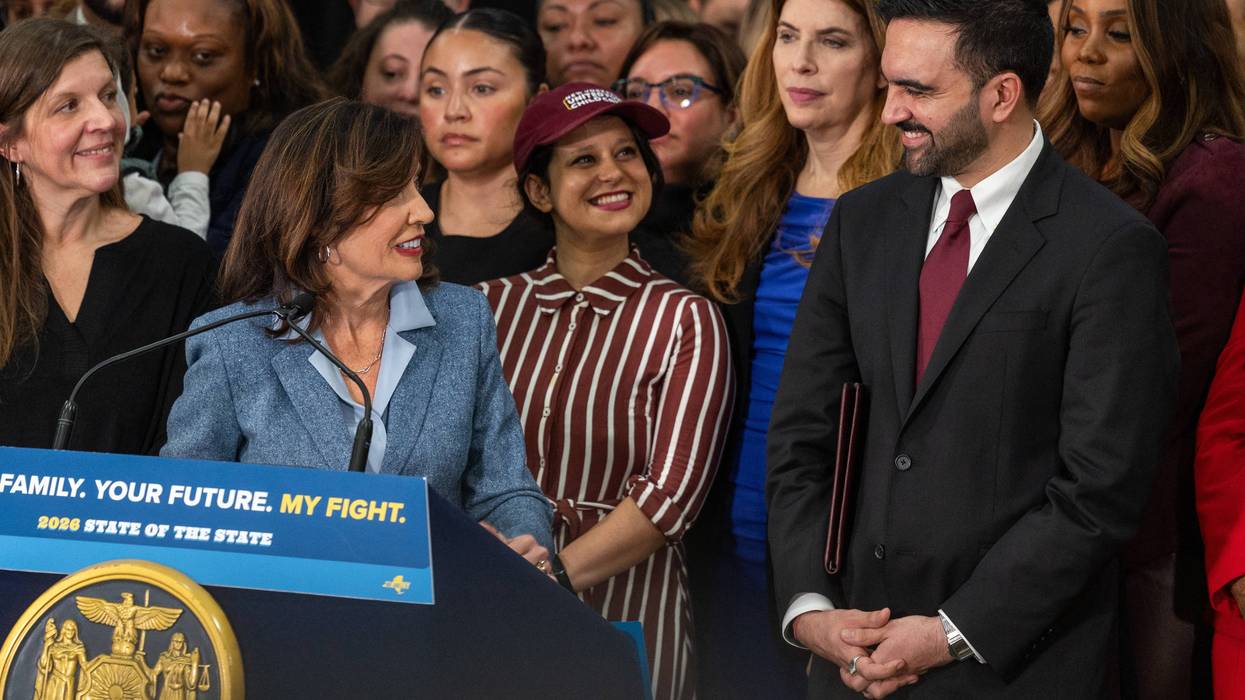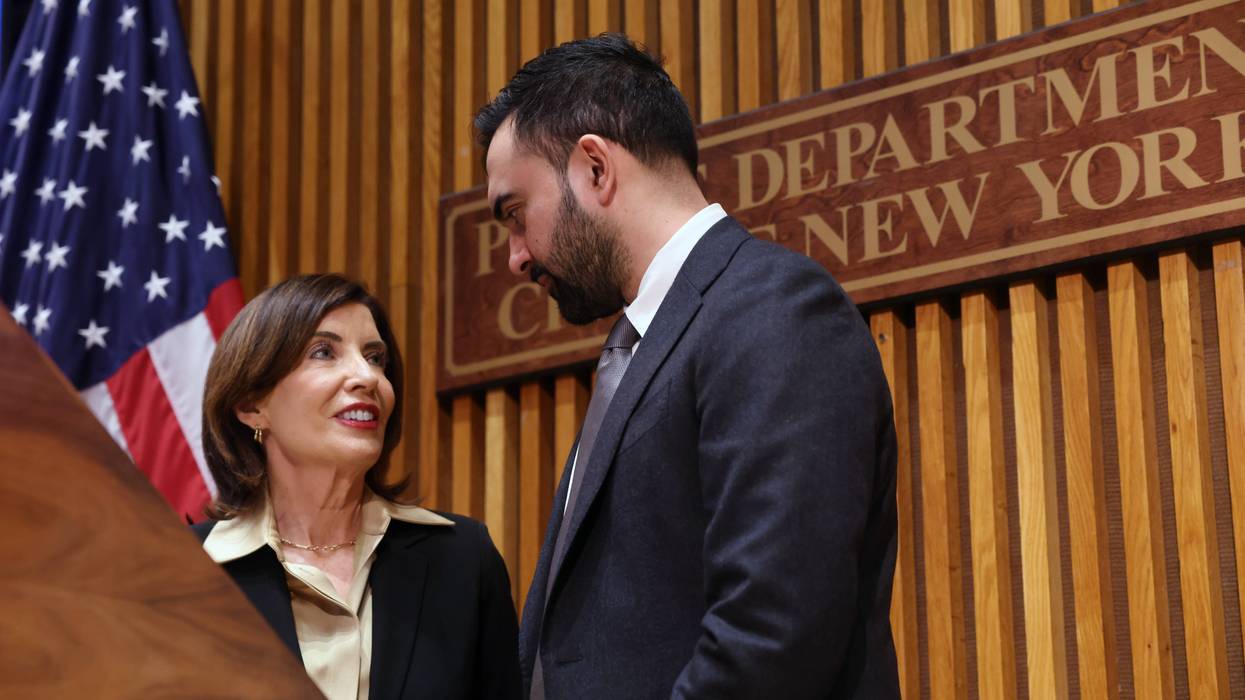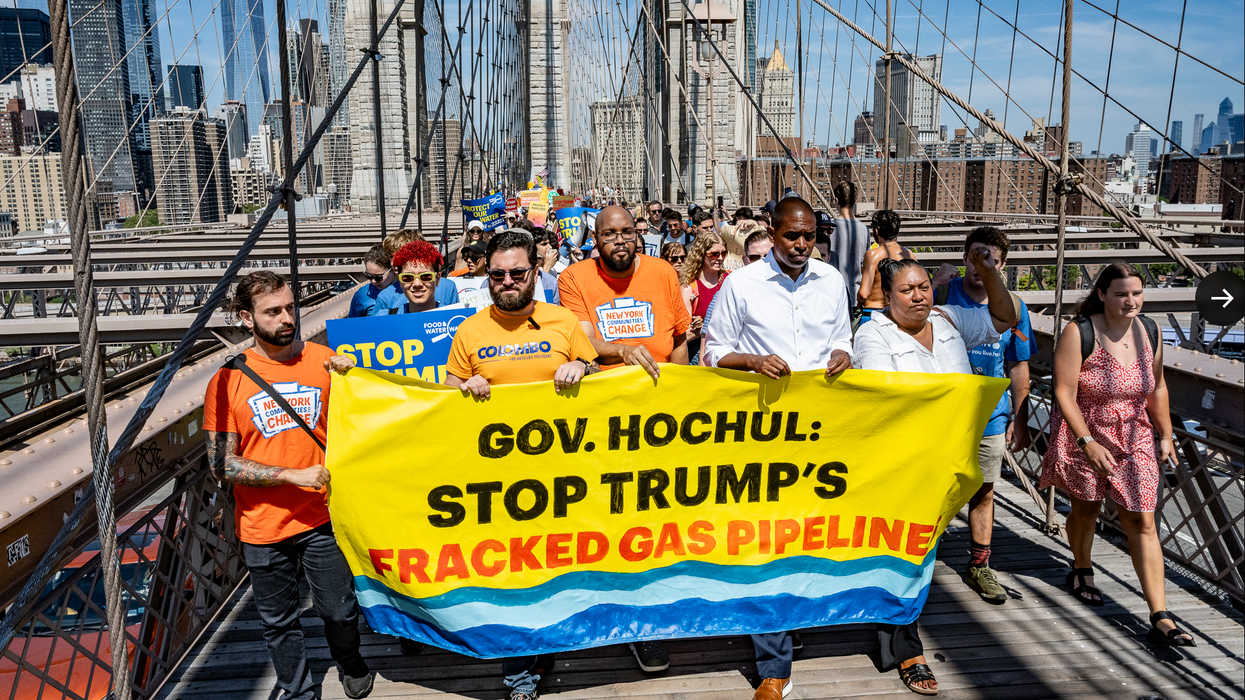“As governor, a top priority is making sure the lights and heat stay on for all New Yorkers as we face potential energy shortages downstate as soon as next summer,” Hochul said in a statement. “We need to govern in reality.”
DEC assured that it is "committed to closely monitoring the project’s construction and adherence to all permit conditions to ensure the full protection of New York’s waterways."
This, after the agency twice denied water quality certification for the same pipeline for failing to demonstrate compliance with state quality standards.
In 2020, the DEC under then-Gov. Andrew Cuomo, who is also a Democrat, denied certification for the project after finding that the proposed pipeline was likely to harm water quality by stirring up sediment and other contaminants that “would disturb sensitive habitats, including shellfish beds.”
The advocacy group New York Communities for Change noted in a fact sheet that the project "would jack up already-high utility bills" and be a "super-polluter" that would "generate about 8 million tons of additional climate-heating and asthma-inducing air pollution each year."
"The pollution would also foul our water, including stirring up toxic waste during the construction process," the group added. "The project would especially hurt people on the Rockaways, a majority African American community, where it would terminate."
However, Williams Companies, the group behind the project, filed a new application this year amid pressure from President Donald Trump for Hochul to green-light construction.
“Today’s decision by New York is a complete reversal of their two previous determinations to reject this pipeline project over threats to the state’s water resources," Mark Izeman, senior attorney for environmental health at the Natural Resources Defense Counsel, said in a statement Friday.
"The pipeline proposal is exactly the same, and state and federal law is the same, so there is no legal or scientific basis for taking a 180 degree turn from the state’s past denials," Izeman continued. "If built, the pipeline would tear up 23 miles of the New York-New Jersey Harbor floor; destroy marine habitats; and dredge up mercury, copper, PCBs, and other toxins."
The project "would also harm sensitive shellfish beds and fishing areas, and undercut billions of dollars New York has invested to improve water quality in the harbor," he added.
Earthjustice New York policy advocate Liz Moran said that “it is shameful that Gov. Hochul and her Department of Environmental Conservation made a decision that fails to protect New Yorkers and our precious waterways."
"We are reviewing the certificate and evaluating our options," Moran added. "The certificate application hasn’t changed since being previously rejected by the DEC, water quality standards haven’t changed—only the political context has changed, and that’s not a basis to completely reverse course.”
Sane Energy Project director Kim Fraczek also condemned the approval, asserting that "under Gov. Hochul’s leadership, New Yorkers’ voices were silenced to appease President Trump’s fossil fuel priorities."
"Hochul has made it abundantly clear that she will abdicate her responsibility as governor, violate New York’s signature climate law, dismiss the environmental and affordability struggles facing New Yorkers, and bend the knee to Trump for political expediency," Fraczek added.
Roger Downs, conservation director at the Sierra Club’s Atlantic chapter, said, "It is truly a sad day when New York leaders cave to the Trump administration and agree to build pipelines that New Yorkers do not need and cannot afford."
“This decision is an affront to clean water, energy affordability, and a stable climate," Downs added.
Food & Water Watch New York state director Laura Shindell called Hochul's approval "a betrayal of New Yorkers."
“In granting the certification for this pipeline, Gov. Hochul has not only sided with Trump, she’s fast-tracked his agenda," she continued. "Hochul has shown New Yorkers she’d prefer to do Trump’s dirty work rather than protect our waterways from pollution."
"She hasn’t kept her promises to fight against skyrocketing energy bills or the climate crisis," Shindell added. "But New Yorkers will fight Hochul’s dirty pipeline every step of the way—alongside our communities—until it is stopped for good.”




